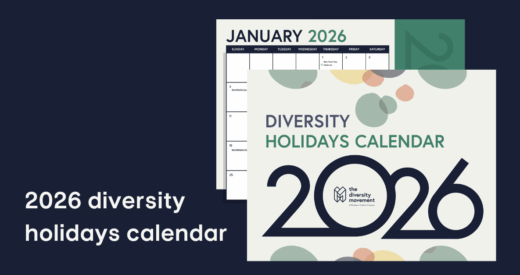Hate crimes continue to rise across the United States, the FBI reports, with upticks specifically in anti-LGBTQ+ attacks. Hate crimes stem from the offender’s bias against a particular group. These biases include racism, sexism, ageism, antisemitism, islamophobia, xenophobia, and, specific to the LGBTQ+ community, homophobia, transphobia, biphobia, lesbophobia, intersexphobia, and heterosexism. While anti-gay hate crimes have actually fallen slightly, there has been a significant increase in anti-trans attacks over the past few years.
The International Day Against Homophobia, Transphobia, and Biphobia (IDAHOTB) was established in 2004 to draw awareness to the continued discrimination and violence faced by members of the LGBTQ+ community. The date, May 17, was chosen to commemorate May 17, 1990, when the World Health Organization declassified homosexuality as a mental disorder. Because IDAHOTB is a decentralized international holiday, you may see varying acronyms that represent different biases, including IDAHO, IDHOT, and IDAHOBIT. IDAHOTB is celebrated across the world in over 130 countries, some of which still have laws criminalizing same-sex acts.
An emphasis of IDAHOTB is the protection of human rights, as highlighted in U.S. President Joe Biden’s 2022 statement:
LGBTQI+ people are entitled to all the rights, opportunities, and protections that belong to every human on this planet. LGBTQI+ people are an essential part of families and communities—teachers, first responders, public officials, doctors, lawyers, front-line workers, and friends who enrich and strengthen every single country.
The reality, however, is that many members of the LGBTQ+ community are denied their rights, including the right to live, the right to expression, and the right to work. LGBTQ+ individuals face discrimination systemically, in hiring, firing, lending, education, and much more. This discrimination strips them of the rights aforementioned. And many fear for their lives. The number of trans people who were murdered in the U.S. nearly doubled between 2017 and 2021, and Black transwomen were disproportionately targeted. LGBTQ+ folks are exposed to violence, danger, and abuse solely because of who they are.
Wondering what you can do to help advance LGBTQ+ rights? Below we’ve outlined a series of ways that you can participate.
- Check your own biases. Even if you’ve been an LGBTQ+ advocate for some time, you may be harboring unconscious biases. We all have them, and unconscious biases aren’t inherently bad. It’s what you do with those biases that counts. The first step is uncovering your biases through exercises such as Harvard’s Project Implicit or The Trusted Ten/Circle of Trust. Then, once you are aware of your biases, actively mitigate them by exposing yourself to new cultures, pausing when you feel bias creeping in, or calling yourself out (and correcting yourself) in the moment.
- Be an ally. To make an impact in your workplace or community, the first step you should take is to become an active ally. An active ally is “any person [who] actively promotes and aspires to advance the culture of inclusion through intentional, positive, and conscious efforts that benefit people as a whole,” according to global DEI leader Sheree Atcheson. Active allyship may look like listening to and amplifying the voices of LGBTQ+ leaders, educating yourself and others on issues faced by the LGBTQ+ community, or speaking up when you hear discriminatory remarks. For more on active allyship, read our guide How to Be an Active Ally.
- Audit your policies. Take a thorough look through your organization’s policies and procedures. Do you have an outdated dress code that adheres to traditional norms of femininity and masculinity? Does your employee handbook use “he or she” rather than “they?” Do your benefits exclude same-sex partnerships? What about gender-affirming procedures and treatment? All of these instances send a message to your LGBTQ+ employees that they are not welcome at your company as their authentic selves. To show true commitment to LGBTQ+ anti-discrimination, make sure your company policies are inclusive. And be sure to include LGBTQ+ employees in your policy update process to make sure their views are represented.
- Donate. One of the most powerful things you can do to support the LGBTQ+ community is to donate your time and/or money. Donations are valuable because they enable LGBTQ+ advocacy groups to get exactly what they need. You can donate to or volunteer with national organizations such as the Human Rights Campaign or GLAAD, or you can support local organizations and have an impact on your own community.
Kaela Sosa, CDE, is Curriculum and Programming Manager at The Diversity Movement as well as one of its founding members. With a degree in Psychology and Gender Studies, Kaela has fought for the visibility and acknowledgement of issues pertaining to underrepresented groups for nearly a decade. Connect with her on Linkedin.





